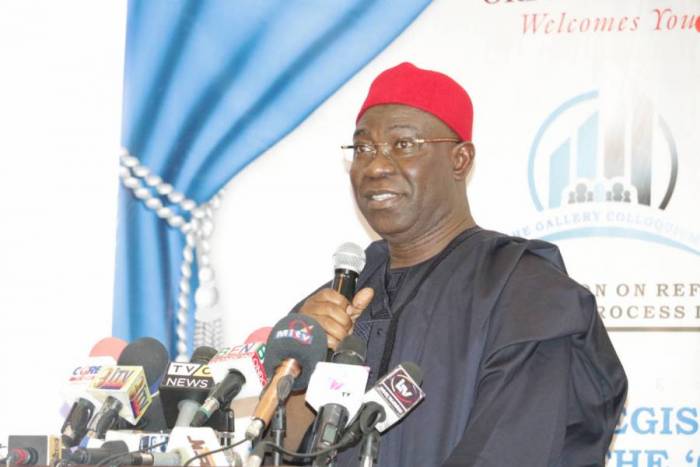
The Deputy President of the Senate, Ike Ekweremadu, has said the best way to end the crisis between herdsmen and farmers is to dump open grazing for ranching.
He urged the states to make laws to end open grazing, describing it as “archaic, anachronistic and out of tune with modern society.”
Ekweremadu stated this at the House of Commons, Parliament of the United Kingdom, where he delivered a lecture titled, ‘African Politics: The Dynamics and Lessons.’
A statement on Sunday by his Special Adviser on Media, Uche Anichukwu, quoted Ekweremadu as stating that the Federal Government’s only business in ranching would be the provision of policy direction.
The Deputy Senate President said, “I believe that ranching is the way to go rather than open grazing. However, it is for the Federal Government to provide the policy direction, while the states take up the challenge, because the issue of cattle rearing is a state matter as all lands are vested in the respective states under the Land Use Act in Nigeria.
“The states need to come up with legislation to end open grazing. It is not for them to set up ranches since it is people’s private business. The states should instead come up with agricultural credit schemes that will encourage and support the farmers to set up their ranches.”
Ekweremadu also reiterated his call for the decentralisation of policing in Nigeria and Africa, saying such was the continent’s way out of its myriad of security challenges.
He blamed the worsening insecurity in Nigeria on unitary policing in the federal system.
He said, “The senseless killings in Benue, Taraba, Plateau, Kaduna, Adamawa, Nasarawa and Zamfara states in Nigeria; the insurgency in the North-East Nigeria, and the militancy in the South-South of the country thrive because of the abnormal, centralised system of policing in Nigeria.
“Africa must enthrone modern policing that is swift, active and reliable. This will not only secure lives and property, but also will secure the confidence of investors and our nascent democracies.
“Nigeria must come to terms with the need to allow sub-national governments to set up their internal security organisations. This way, states and local governments will determine the number of policemen they need in line with their peculiar security challenges and realities.”







